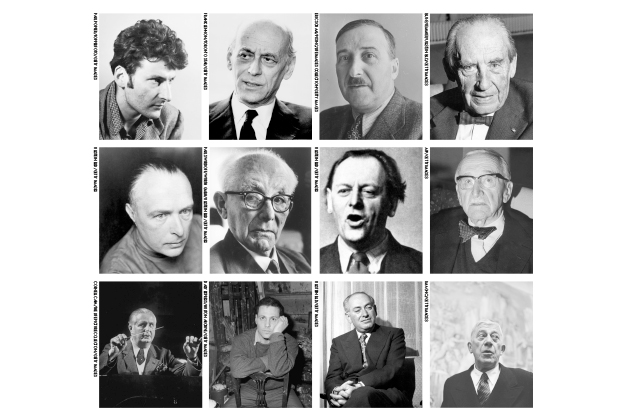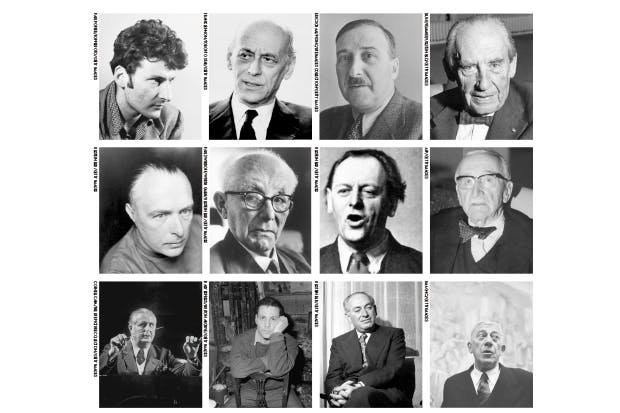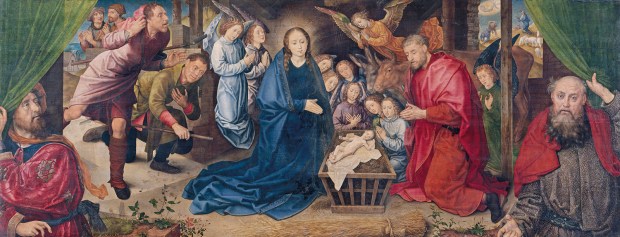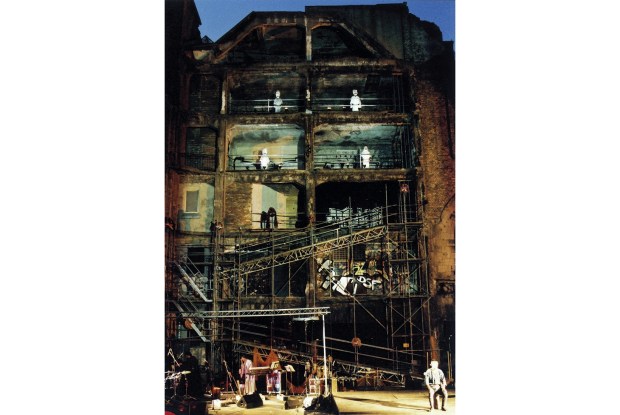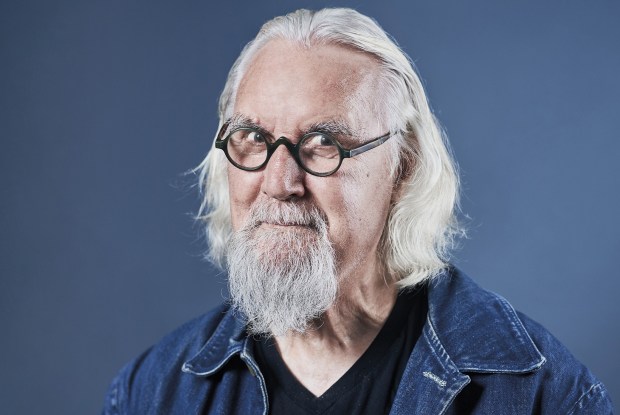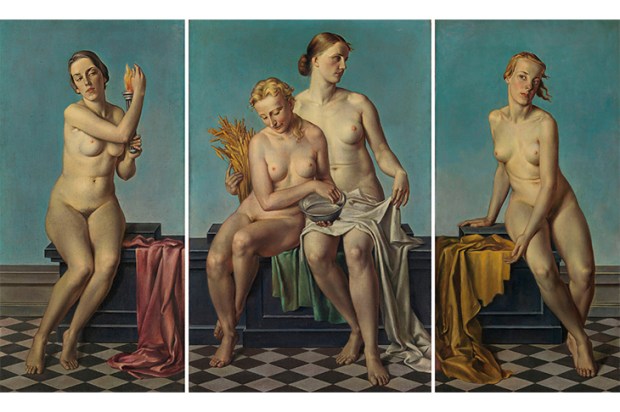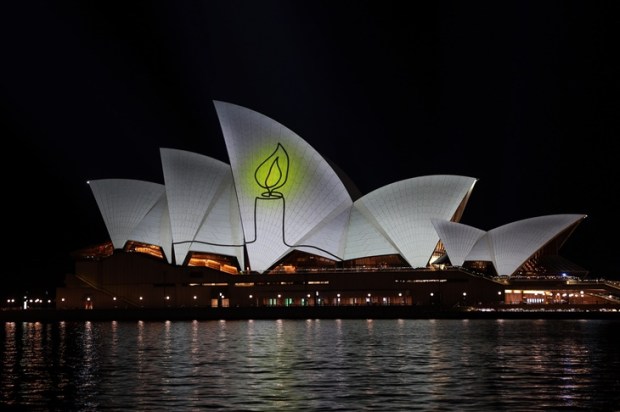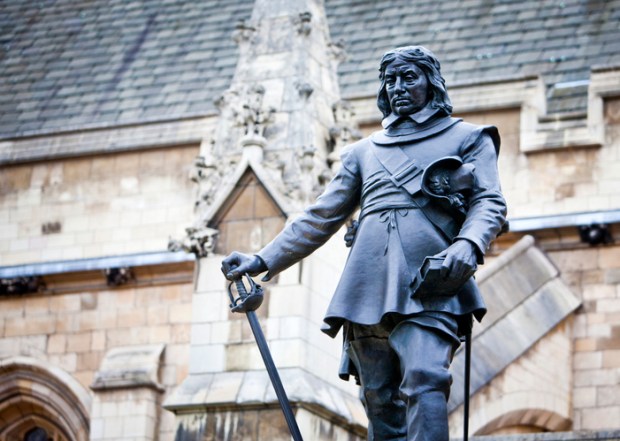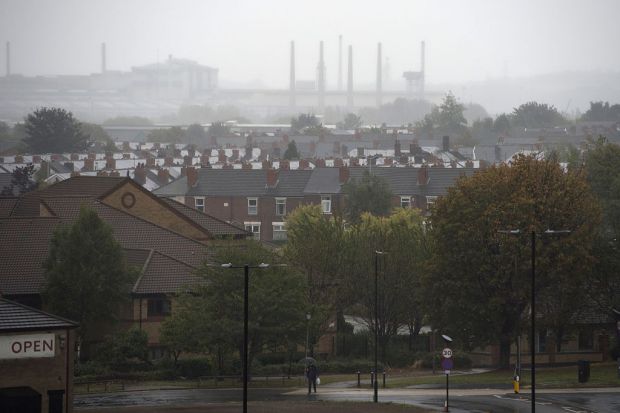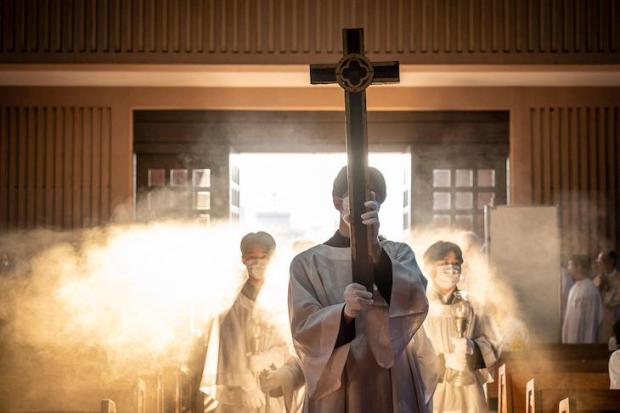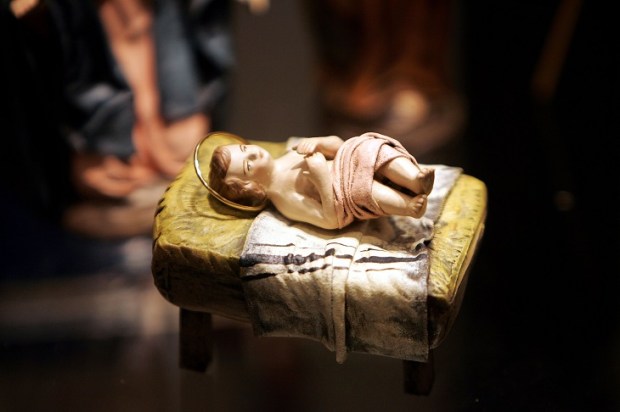Next week Frank Auerbach will be honoured by the British art establishment with a one-man show at Tate Britain. It’s a fitting tribute for an artist who’s widely (and quite rightly) regarded as Britain’s greatest living painter. Yet although Auerbach has spent almost all his life in Britain, what’s striking about his paintings is how Germanic they seem.
Born in Berlin in 1931, Auerbach was only seven when he came to England (his parents subsequently perished in the Holocaust). By rights, he should stand alongside British artists such as Peter Blake and David Hockney, yet his work feels far closer to German painters like Georg Baselitz or Anselm Kiefer. Auerbach is a one-off, a unique painter with a unique vision. However he’s also part of a vast wave of Germanic immigration that has transformed British cultural life — mainly for the better, but at a price.
During the 1930s, 100,000 refugees fled to Britain from the Third Reich. Britain had weathered other migrations, but this one was entirely different. Nazism had transformed a liberal democracy into a violent, superstitious tyranny. These refugees weren’t only fleeing from anti-Semitism. They were fleeing from a pogrom against western civilisation. This wave of immigrants wasn’t just another huddled mass — it was the cultural élite of Central Europe, the best and brightest from every avenue of academia and the arts.
Arriving with nothing, starting from nothing, the achievements of these refugees were staggering. Every artistic genre was invigorated by their arrival, from music (Fritz Busch, Hans Keller) to literature (Stefan Zweig), from fine art (Kurt Schwitters, Oskar Kokoschka) to cinema (Emeric Pressburger, Karel Reisz). Gerard Hoffnung and Victor Weisz (aka Vicky) delighted Britain with their cartoons. Kurt Jooss and Rudolf Laban revolutionised British dance. Like Auerbach, Lucian Freud came to Britain from Berlin. Three of the Amadeus Quartet came from Vienna, and met in an internment camp on the Isle of Man.
German-speaking émigrés enlivened every academic discipline: economics (Friedrich Hayek), mathematics (Max Born), philosophy (Karl Popper), psychology (Hans Eysenck), history (Eric Hobsbawm, Geoffrey Elton)… The list goes on and on. In his fascinating book The Hitler Emigrés (essential reading for anyone interested in this rich subject) Daniel Snowman calculates that this intellectual exodus produced 16 Nobel laureates, and 74 Fellows of the Royal Society. Many of these émigrés were Jewish and some weren’t, but that hardly mattered. They were champions of civilised, enlightened values, rather than members of a certain religion, or a certain race.
If anything, these cultured refugees were even more influential behind the scenes. George Weidenfeld introduced a new internationalism to British publishing. Claus Moser championed opera. Martin Esslin brought Brecht to the BBC. Nikolaus Pevsner and Ernst Gombrich elevated architectural history and art criticism. Rudolf Bing helped to establish Glyndebourne and the Edinburgh Festival (based on his memories of Salzburg).
The influence of these artistic émigrés has been so all-pervading that it’s easy to forget how insular British culture was before the second world war. Reviewing an exhibition of German art at the Burlington Gallery in 1938, the art critic of the New Statesman declared, ‘If Hitler doesn’t like these pictures, it’s the best thing I’ve heard about Hitler.’ British modernists fared no better. In 1938, the Tate’s director, J.B. Manson, said that Henry Moore would only enter the gallery over his dead body. Yet by 1951, Moore had become the star turn at the Festival of Britain. Finally, against all odds, these continental émigrés had dragged British culture into the 20th century. From now on, in Britain, as on the continent, modernism was the status quo.
This tale is usually told as a story with a happy ending, a triumph of progressive values over reactionary, fuddy-duddy conservatism. But although Britain gained a great deal from this flood of foreign talent, you can’t help feeling, looking back, that something was lost along the way. Before the war, British culture was much more staid, but more in tune with public opinion. Since 1945 our artistic institutions have become much more Middle European: avant-garde, conceptual and out of step with popular taste.
Among the British intelligentsia, modernism has become the new orthodoxy, but this Mitteleuropäische aesthetic has never really been accepted by the population as a whole. There’s a cultural class divide in Britain (to an extent unknown in Germany) between highbrow and lowbrow, between bien-pensant and populist attitudes to art. The cognoscenti may flock to the latest show at the White Cube, but beyond the metropolitan bubble the feeling persists that most modern art is obscure and somehow foreign. This is a legacy of the Hitler émigrés, and the modernist movement they inspired.
Even at the time, some Britons feared this continental influx would change the nature of our island’s cultural life. In Snowman’s absorbing book, he recounts how Vaughan Williams was invited to become a patron of a new Anglo-Austrian Music Society, formed by Austrian musicians who’d fled to Britain. ‘The great thing which frightens me,’ he replied, ‘is that it will entirely devour the tender little flower of our English culture.’ Vaughan Williams loved Austrian music but he loved English music too, and he feared the former might overwhelm the latter. ‘We cannot swallow the strong meat of your culture,’ he wrote. ‘Our stomachs are not strong enough.’
Actually, the field in which his worst fears were realised wasn’t music but architecture. During his brief exile in Britain, Walter Gropius inspired a new generation of British architects, but what worked in Weimar and Dessau didn’t suit Stevenage or Stepney. Erno Goldfinger’s tower blocks summed up the British aversion to brutalism. Hipsters adore his Trellick Tower, and his house is maintained by the National Trust, but he’s now best remembered as the inspiration for a particularly unpleasant Bond villain.
It was no surprise that this architectural style failed to take root in Britain. Introducing a Gropius exhibition at Riba, in 1934, the British architect Raymond Unwin teased the Germans for their devotion to theories. The British cultural style has always been discreet and understated — ironic, self-effacing, instinctively wary of radical innovations or big ideas.
This gulf between British and continental attitudes to all things intellectual was summed up by the Hungarian émigré George Mikes, in his wise and witty book about the immigrant experience called How to be an Alien. ‘In England it is bad manners to be clever,’ he observed. ‘It may be your own personal view that two and two make four, but you must not state it in a self-assured way, because this is a democratic country, and others may be of a different opinion.’ Driven by the Hitler émigrés, Britain now has a very clever arts scene, but it’s an arts scene that feels alien to most Britons.
Like Auerbach, my father emigrated from Germany to Britain when he was a boy. He arrived a decade later, a refugee from a defeated Reich. Like Auerbach, he became an artist. Auerbach was one of his teachers, at Camberwell Art School. When I look at my father’s paintings, I can see some of Auerbach in them. Like Auerbach, my father has lived in Britain ever since he was a child — but, like Auerbach, he’s still an artist from elsewhere.
Got something to add? Join the discussion and comment below.
Frank Auerbach is showing at Tate Britain from 9 October until 13 March 2016.
You might disagree with half of it, but you’ll enjoy reading all of it. Try your first month for free, then just $2 a week for the remainder of your first year.

